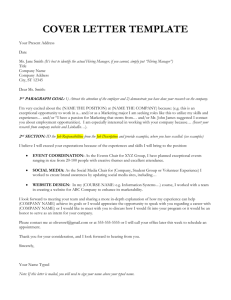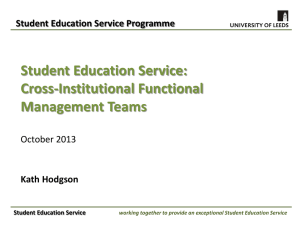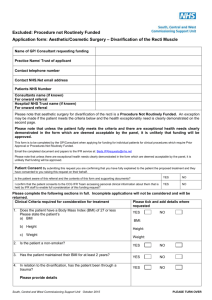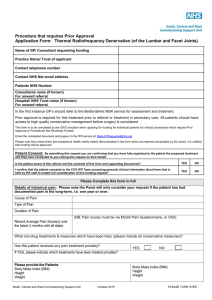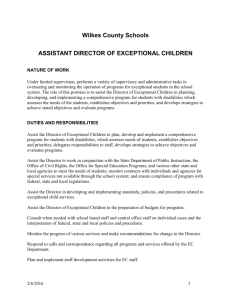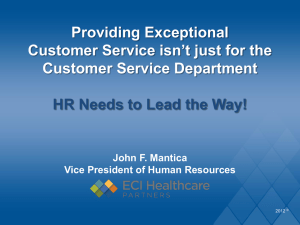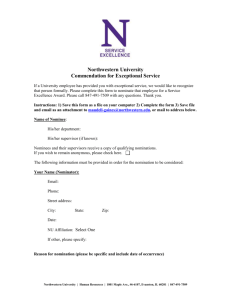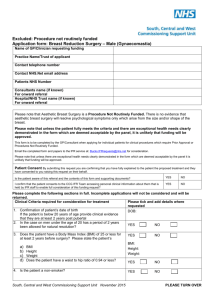EDS 685 Syllabus of Record: A Practicum/Field for Special
advertisement
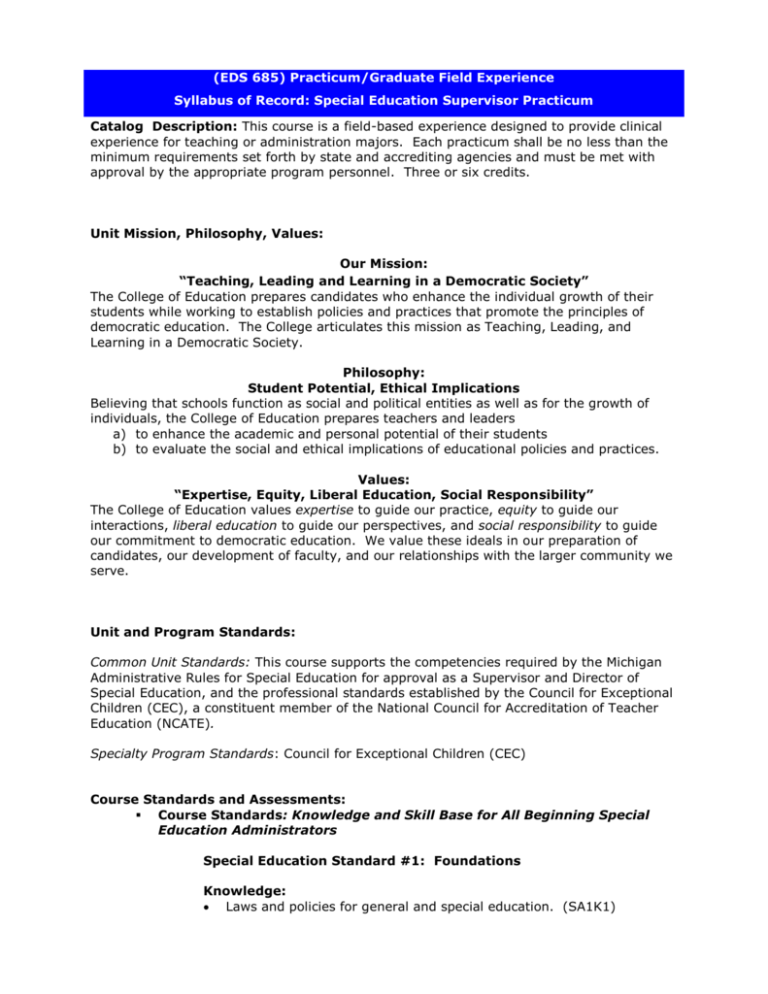
(EDS 685) Practicum/Graduate Field Experience Syllabus of Record: Special Education Supervisor Practicum Catalog Description: This course is a field-based experience designed to provide clinical experience for teaching or administration majors. Each practicum shall be no less than the minimum requirements set forth by state and accrediting agencies and must be met with approval by the appropriate program personnel. Three or six credits. Unit Mission, Philosophy, Values: Our Mission: “Teaching, Leading and Learning in a Democratic Society” The College of Education prepares candidates who enhance the individual growth of their students while working to establish policies and practices that promote the principles of democratic education. The College articulates this mission as Teaching, Leading, and Learning in a Democratic Society. Philosophy: Student Potential, Ethical Implications Believing that schools function as social and political entities as well as for the growth of individuals, the College of Education prepares teachers and leaders a) to enhance the academic and personal potential of their students b) to evaluate the social and ethical implications of educational policies and practices. Values: “Expertise, Equity, Liberal Education, Social Responsibility” The College of Education values expertise to guide our practice, equity to guide our interactions, liberal education to guide our perspectives, and social responsibility to guide our commitment to democratic education. We value these ideals in our preparation of candidates, our development of faculty, and our relationships with the larger community we serve. Unit and Program Standards: Common Unit Standards: This course supports the competencies required by the Michigan Administrative Rules for Special Education for approval as a Supervisor and Director of Special Education, and the professional standards established by the Council for Exceptional Children (CEC), a constituent member of the National Council for Accreditation of Teacher Education (NCATE). Specialty Program Standards: Council for Exceptional Children (CEC) Course Standards and Assessments: Course Standards: Knowledge and Skill Base for All Beginning Special Education Administrators Special Education Standard #1: Foundations Knowledge: Laws and policies for general and special education. (SA1K1) Evolution of laws and policies that impact the lives of individuals with exceptionalities and their families from birth through adulthood. (SA1K2) Political and economic issues that affect policy development. (SA1K3) Models, theories, and philosophies that provide the basis for educational systems. (SA1K4) Development and implementation of policies and regulations for individuals with exceptional learning needs and their families. (SA1K5) Laws and policies regarding assessment, program evaluation, and accountability related to individuals with exceptional learning needs. (SA1K6) General curriculum theories and implications for individuals with exceptional learning needs. (SA1K7) Research related to educational change. (SA1K8) Education, social and health agency fiscal policies. (SA1K9) Human resources management, recruitment, personnel assistance and development, and evaluation. (SA1K10) Sources of funding (SA1K11) Laws and policies governing the discipline of all students and implications for individuals with exceptional learning needs. (SA1K12) Legal and ethical issues of behavior management of individuals with exceptional learning needs. (SA1K13) Family systems and the role of families in supporting development and educational progress of the individual with exceptional learning needs. (SA1K14) Skills: Interpret laws and policies pertaining to individuals with exceptional learning needs. (SA1S1) Special Education Standard #8: Assessment Skills: Advocate for the participation of individuals with exceptional learning needs in accountability systems. (SA8S1) Implement procedures within the assessment accountability system to ensure the participation of individuals with exceptional earning needs (SA8S2) Develop and implement ongoing evaluations of special education programs and practices. (SA8S3) Special Education Standard #9: Professional and Ethical Practice Knowledge: Organizations and publications relevant to the field of special education administration. (SA9K1) Skills: Communicate a personal inclusive vision for meeting the needs of individuals with exceptional learning needs. (SA9S1) Advocate for individuals with exceptional learning needs and their families. (SA9S2) Respect and support individuals with exceptional learning needs in self-advocacy. (SA9S3) Communicate and demonstrate a high standard of ethical practice. (SA9S4) Make decisions concerning individuals with exceptional learning needs based on open communication, trust, mutual respect, and dignity. (SA9S5) Participate in the activities of the professional organization relevant to the field of Special Education Administration. (SA9S6) Special Education Standard #10: Collaboration Knowledge: Approaches for involving parents, family, and community members in educational planning, implementation, and evaluation. (SA10K1) Role of parent and advocacy organizations as they support individuals with exceptionalities and their families. (SA10K2) Skills: Develop and implement intra- and interagency agreements that create programs with shared responsibility for individuals with exceptional learning needs. (SA10S1) Promote seamless transitions of individuals with exceptional learning needs across educational and other programs from birth through adulthood. (SA10S2) Implement administrative procedures to ensure clear communication among administrators, instructional staff and related service personnel. (SA10S3) Develop family education and other support programs. (SA10S4) Engage in shared decision making to support programs for individuals with exceptional learning needs. (SA10S5) Provide ongoing communication with families of individuals with exceptional learning needs. (SA10S6) Consult and collaborate in administrative and instructional settings. (SS10S7) Common Course Assessment: Portfolio Major Topics: Participate in an Independent Learning Experience Attend and Analyze a State of Michigan School Board Meeting Attend and analyze a Local and Intermediate School District Board meeting Conduct a staff evaluation Conduct a special education monitoring review Develop a comprehensive in-service plan Section Conduct a field visit Complete two major projects with a focus on curriculum and personnel Course Knowledge Base: This course is based on a framework provided from multiple sources including: Individuals With Disabilities Improvement Act (IDEIA) 2004 Federal regulations Michigan Administrative Rules for Special Education Michigan Department of Special Education policies and procedures Rehabilitation Act of 1973
